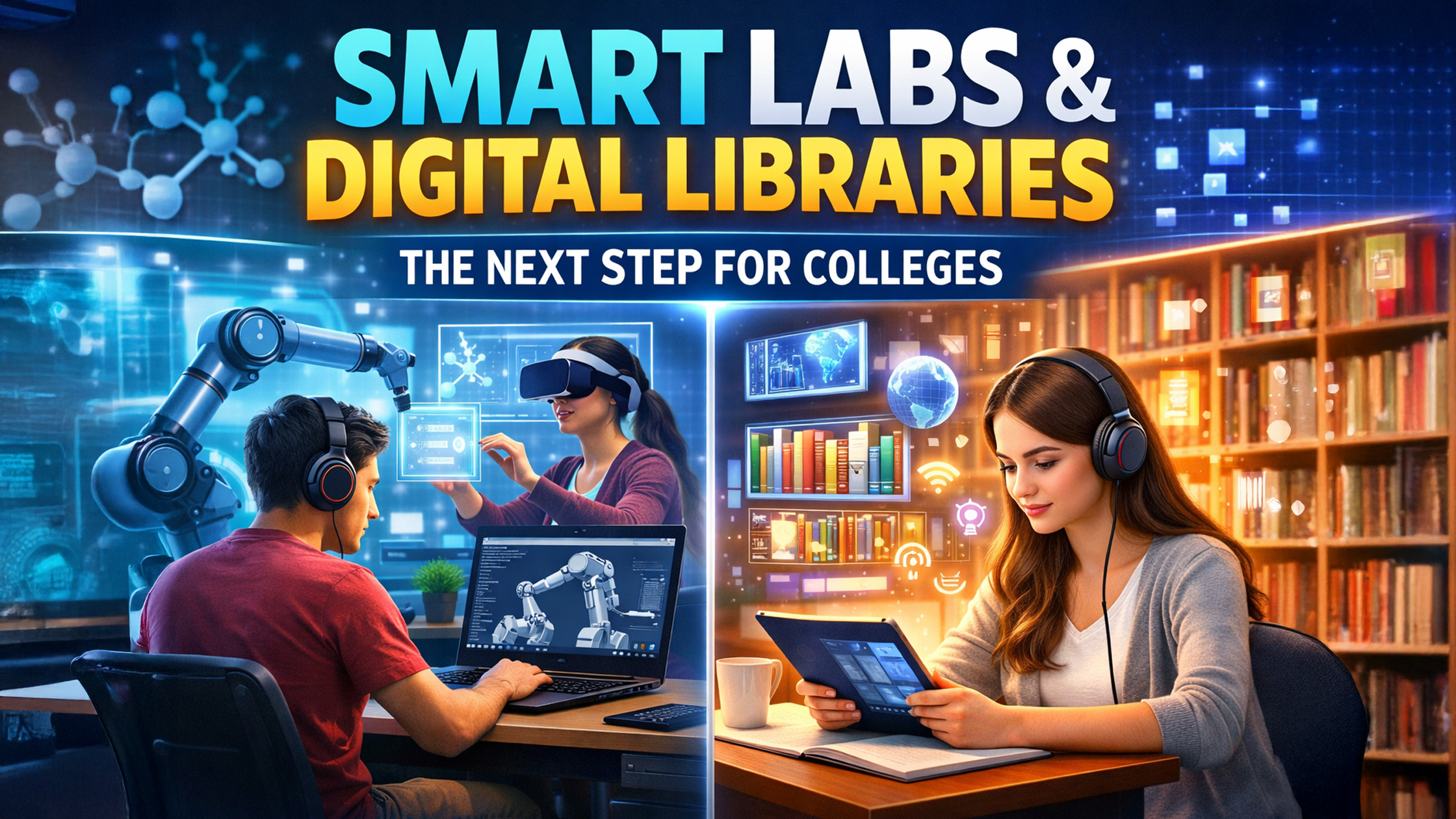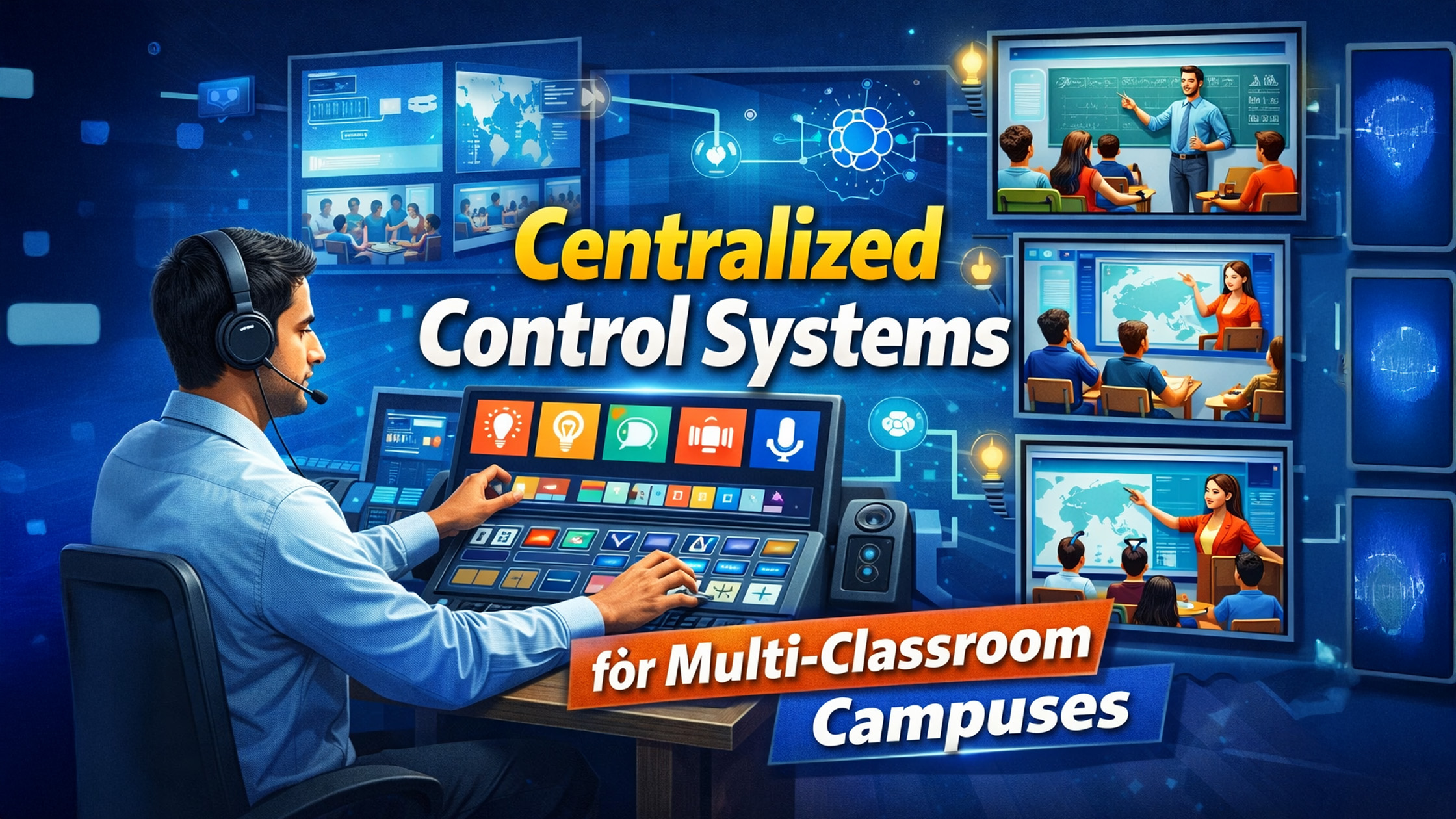
The role of teachers in the 21st-century classroom is evolving rapidly, with technology playing a critical role in reshaping instructional strategies. Interactive Flat Panel Displays (IFPDs) have emerged as powerful teaching tools that streamline lesson delivery, enable real-time engagement, and support data-driven decision-making. For educators, these tools are not just about digital convenience—they are about transforming the teaching experience itself. This article explores the key benefits of interactive panels for teachers and educators, the role of unified communication tools, the integration of artificial intelligence, and the challenges faced during implementation.
1. Real-Time Feedback Mechanisms
Interactive panels allow teachers to go beyond lectures and slides by incorporating live quizzes, polls, and interactive exercises directly into their lessons. These tools provide immediate feedback, helping educators gauge student understanding on the spot.
Benefits:
Instant assessment of student comprehension
On-the-fly adjustments to lesson delivery
Encourages classroom participation
Reduces reliance on traditional paper-based testing
Example: A science teacher uses a quick digital quiz after each concept. The real-time results highlight students who need more explanation, enabling the teacher to revisit topics immediately.
2. Simplified Lesson Planning and Delivery
Modern IFPDs come with built-in educational tools, cloud storage access, and integrations with digital content libraries. This streamlines the planning process, allowing teachers to focus on delivering impactful lessons rather than spending hours preparing materials.
Benefits:
Faster access to teaching resources
Easy integration of videos, simulations, and diagrams
Drag-and-drop lesson design with templates
Less time spent on manual logistics and more on active teaching
Pro Tip: Educators can save and reuse interactive lesson templates, significantly reducing preparation time for recurring topics.
3. The Role of Unified Communication (UC) Tools
a. Seamless Teacher-Student Interaction
Unified communication platforms integrated into IFPDs (e.g., Google Workspace, Microsoft Teams, Zoom) support real-time collaboration, even in remote or hybrid learning setups. Teachers can share documents, initiate video calls, annotate materials, and chat—all from the same panel interface.
Benefits:
Improved collaboration inside and outside the classroom
Enhanced engagement in hybrid or virtual setups
Easy sharing of homework, resources, and feedback
b. Integration with Video Conferencing and Remote Learning
Interactive panels work smoothly with leading video conferencing tools, making them indispensable for distance learning. Teachers can use screen-sharing, breakout rooms, and digital whiteboarding to replicate in-person teaching experiences.
Benefits:
Continuity of education during school closures or disruptions
Enables blended learning models
Supports geographically diverse classrooms
Example: A teacher hosts a live class on Zoom via the interactive panel while recording the session and annotating notes live for students to review later.
4. AI Integration in Interactive Learning
a. Adaptive Learning with AI
Advanced IFPDs are beginning to integrate with AI-powered learning platforms that analyze student performance in real time. These platforms can automatically recommend content tailored to individual needs, making learning more effective and efficient.
Benefits:
Personalized instruction based on learner data
Smart pacing of lessons
Higher engagement and improved outcomes for all ability levels
b. Data-Driven Decision Making for Educators
Teachers now have access to performance dashboards and analytics, allowing them to make evidence-based instructional decisions. They can identify patterns in student engagement, quiz scores, and participation to refine their strategies.
Benefits:
Timely interventions for struggling students
Continuous improvement of teaching methods
Better communication with parents through data reports
5. Implementation Challenges and Barriers
While the benefits are substantial, integrating interactive panels into everyday teaching does come with its challenges.
a. Infrastructure and Connectivity Gaps
Not all schools—especially those in rural or underfunded areas—have the infrastructure to support advanced EdTech tools. Lack of internet, power instability, or outdated hardware can limit the use of interactive panels.
Solution: Government and private sector partnerships can help bridge the digital divide by investing in infrastructure and connectivity.
b. Faculty Training and Pedagogical Shifts
Transitioning from chalkboards to interactive panels requires more than just equipment—it demands a mindset shift and ongoing professional development. Teachers must be trained not just on how to use the hardware, but on how to leverage it for improved pedagogy.
Solution: Schools should invest in regular training sessions, peer learning communities, and curriculum redesigns that integrate technology effectively.
For teachers and educators, interactive panels offer far more than a digital display—they provide a powerful ecosystem for real-time feedback, collaborative learning, simplified planning, and data-informed teaching. As educational institutions strive for innovation and adaptability, these tools are central to building effective, engaging, and inclusive learning environments.
While challenges exist, thoughtful implementation and support can ensure that the benefits of interactive technology reach every classroom—and every teacher.
Your email address will not be published. Required fields are marked *

By Inhype • February 11, 2026
Indian education is evolving rapidly. Schools, colleges, coaching centres, universities, and training institutes are no longer choosing between online
Read More
By Inhype • February 11, 2026
Across India, teachers are facing rising workloads, screen fatigue, classroom management stress, and pressure to deliver consistent results both onlin
Read More
By Inhype • February 11, 2026
Indian colleges are rapidly shifting toward smart classrooms, smart labs, and digital libraries to meet the demands of hybrid learning, NEP 2020, and
Read More
By Inhype • February 11, 2026
With the rapid growth of smart classrooms, hybrid learning, and digital collaboration in India, schools, colleges, coaching centres, and corporates ar
Read More
By Inhype • February 11, 2026
As smart classrooms in India rapidly expand, managing multiple digital boards, cameras, audio systems, and interactive panels across a large campus ha
Read More
No comments yet. Be the first to comment!